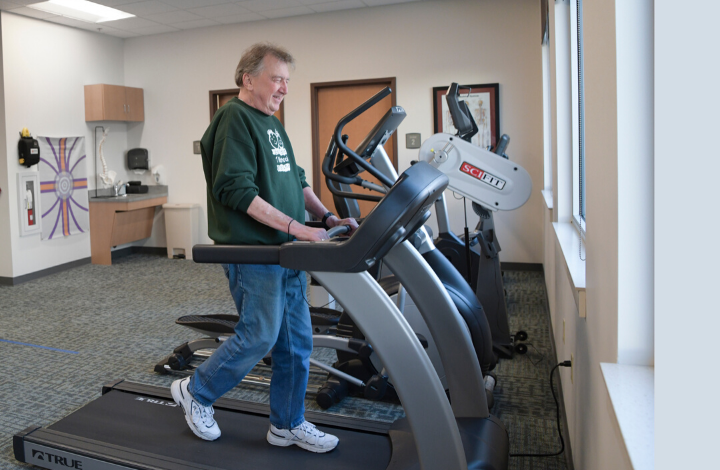Blog

Do you feel tingling, numbness, burning or pins and needles in your feet or hands?
If so, you might have neuropathy, a common, yet serious and treatable disorder.
What is neuropathy? It’s damage of the peripheral nerves, nerves that are outside the spinal cord and control our sensations and muscle strength. Neuropathy usually starts with abnormal sensations in the feet or hands. It can even happen in the eyes and occasionally the facial nerves can be affected, such as Bell’s Palsy.
Widespread disease
Twenty million people in the US, and 2.5 percent of the world’s population suffer from this sort of discomfort or reduced ability to feel. It’s often a sign of the worsening or untreated diabetes, though that’s not the only cause.
According to St. Luke’s neurologist and neuromuscular specialist Divisha Raheja, MD, “The older you get, the more likely you are to have neuropathy, though more and more people of all ages are developing it due to their sedentary habits, obesity and diabetes.” Prevalence of neuropathy increases to 8% in patients over 55 years of age. Some young people have it due to complications from a genetic condition.
People with neuropathy often come to Dr. Raheja seeking relief from pain, or complaining of balance problems, muscle weakness, or other symptoms. She diagnoses it in her office through a patient interview and examination which includes checking sensations with a ‘pinprick test,’ cold sensation, a light stimulation on their feet and toes that tests sensitivity. Bloodwork and EMG nerve conduction studies may be performed to confirm the ailment or find another cause. Sometimes a pinched nerve in the back or neck can mimic neuropathy-like symptoms.
Other causes of neuropathy include side effects of medications, chemotherapy, Vitamin B12 deficiency, thyroid disorders, autoimmune problems, liver or kidney disease, infections, HIV and hepatitis C. However, says Dr. Raheja. “Despite the extensive workup, the cause of neuropathy may remain unknown in one-third to one-half of patients, specifically in older population.”
Geoff Hillary, 72 of Forks Township, was diagnosed with chronic inflammatory demyelinating polyneuropathy, an autoimmune condition, four years ago. His condition was kept under control using intravenous immunotherapy and steroids, until a relapse put him in a wheelchair. Now Dr. Raheja manages his care, prescribing dialysis-like plasma exchange treatments to remove blood antibodies and keep him on his feet, so he has the strength to walk his dog, Gabby, and work out at the gym. Without them, Geoff believes he’d end up back in the wheelchair like he was in 2018.
He’s impressed with Dr. Raheja’s capabilities and personal demeanor, calling her “very knowledgeable, thorough, and pleasant.”
Reversing, treating, and controlling neuropathy
Diabetic neuropathy can be reversed, or prevented from getting worse, if it hasn’t progressed too far. Exercise, blood sugar control and following a diet rich in vegetables and fruits, whole grains and lean meats help too.
Medicines can be prescribed to help control pain and treat causes of neuropathy. Untreated diabetic neuropathy can progress to the loss of all feeling in the feet. Extreme cases can lead to the need for amputation of the toes, feet or legs.
Steroids and other therapies are used to treat non-diabetic sources of neuropathy, specifically autoimmune disorders. There are resources for patients with hereditary neuropathies such as Charcot Marie Tooth disease, that that can strike patients in their first two decades of life.
If you think you have neuropathy, you will benefit from an early diagnosis and treatment plan by a St. Luke’s neurologist. Click here to make an appointment.





